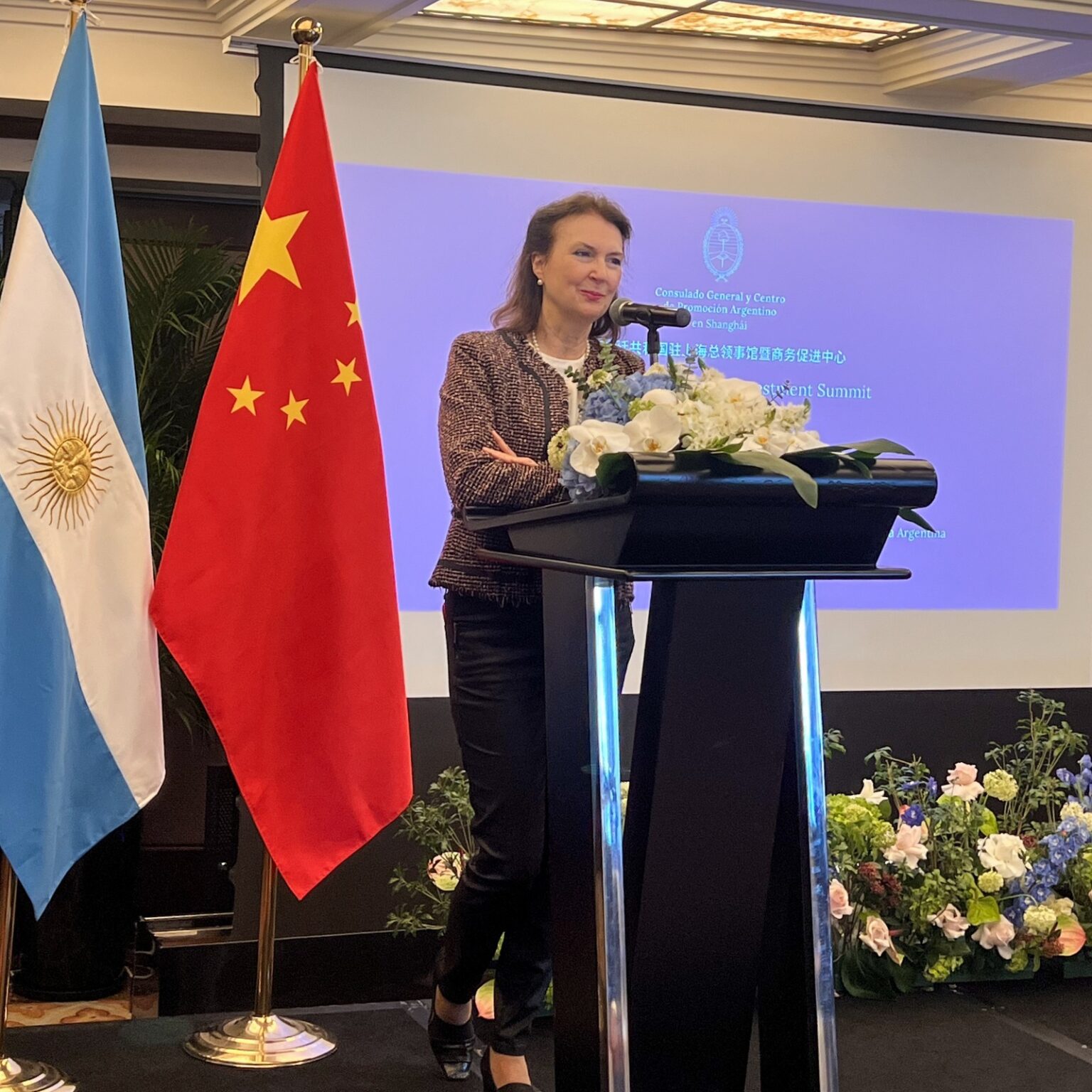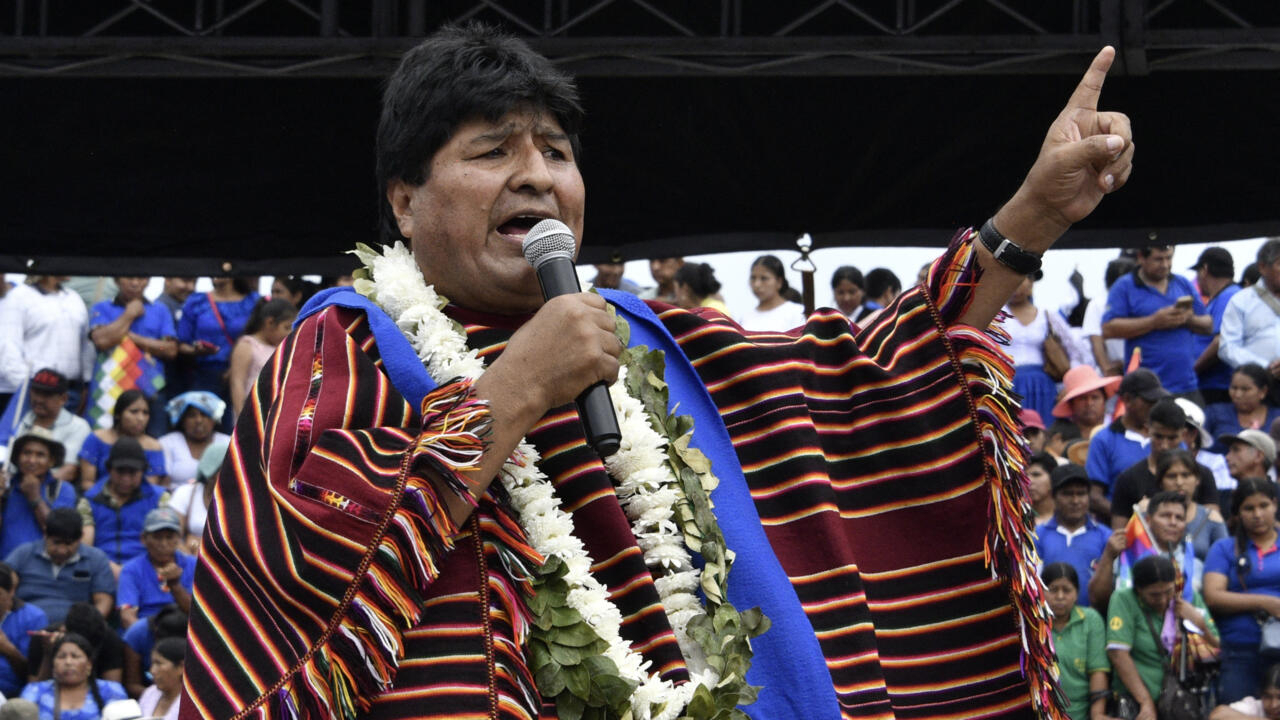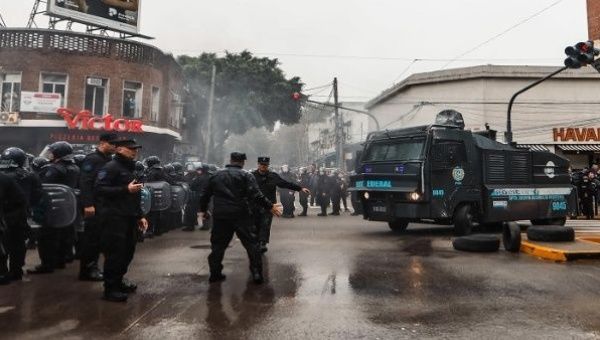MAY 2, 2024
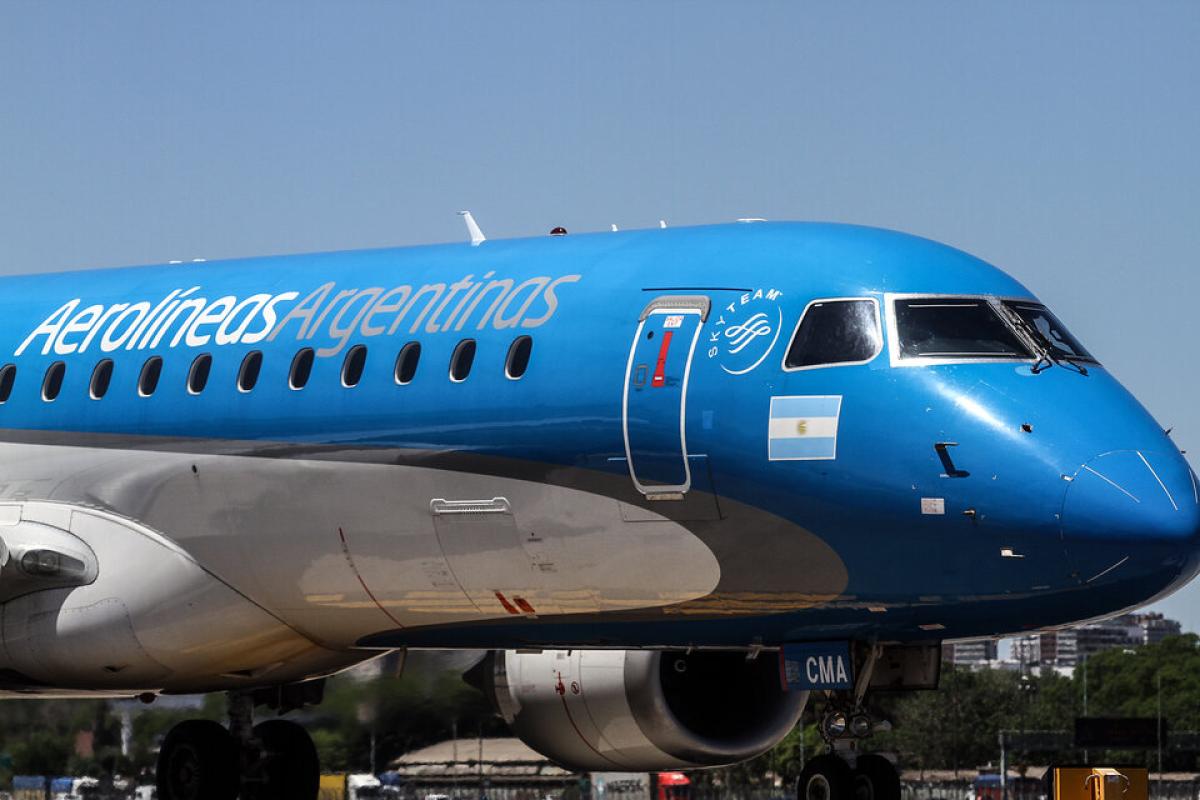
An Embraer 190 jet belonging to Aerolíneas Argentinas. Photo: Carolina Campos.
Chapter Two of the Base Law—also known as the Omnibus Law, as labeled by its proponent President Javier Milei, referring to the privatization of public companies—has been approved in the Argentinian Chamber of Deputies, having obtained the approval of more than 50% of the deputies in the Lower House of the Argentinian Congress, with 138 votes in favor, 111 against, and two abstentions.
The law, passed this Tuesday, April 30, enables the sale and scrapping of state companies. In the original project of the Omnibus Law, Javier Milei’s neoliberal chainsaw intended to fall on 40 state companies and privatize them. Following negotiations with the Republican Proposal party (PRO) and the Radical Civic Union party (UCR), the government agreed to reduce that list to nine public companies, despite these being the most important ones.
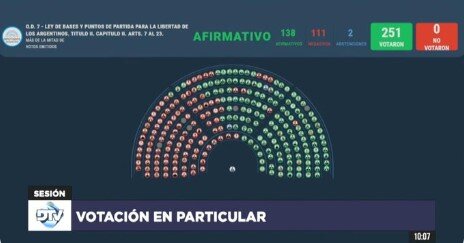
Base Law: which companies were included in the privatization chapter?
In Chapter Two of the Base Law, four major public companies were included in the category of “total privatization:”
Argentinian airlines (Aerolineas Argentinas)
Argentinian Energy (ENARSA)
Radio and Television Argentina (RTA SE)
Intercargo
Argentinian Airlines are currently going through a heavy adjustment plan. Last week, its president, Fabián Lombardo, announced a plan to implement cuts to “reduce the operating deficit by half,” with the closure of cabotage routes in the off-season.
Intercargo is the state company that provides ground services, ramps, and access bridges at airports.
The sale of ENARSA, founded in 2004, means transferring to the private sector the structure of a firm that carries out studies, exploration, and exploitation of hydrocarbon deposits, as well as tasks of transportation, storage, distribution, marketing, and industrialization of that strategic commodity and its derivatives.
Meanwhile, the sale of RTA SE is a new blow to the media map and federal communication, as was the recent closure of the Télam agency. The public radio station network has more than 40 stations throughout the country.
In addition to these four public companies, another five may pass into private hands or be concessioned:
Argentinian Water and Sanitation (AYSA)
Argentinian Mail
Belgrano Loads
Road Corridors
Railway Operating Company (SOFSE)
In addition, two other companies may incorporate private capital, although they will keep a majority of state participation:
Nuclear and Electric Argentina (NASA)
Rio Turbio Carboniferous Deposits (YCRT)
In these cases, it will be possible “only to organize a joint ownership program and place a class of shares for that purpose; and incorporate the participation of private capital, with the National State having to maintain control or majority participation in the social capital.”
https://orinocotribune.com/argentina-lo ... insaw-law/
******
THE NAMRU-6: A THREAT TO LATIN AMERICA
Apr 23, 2024 , 7:05 am .

BSL-3 containment laboratories are designed to work with microorganisms of risk group 3, which includes parasitic infections such as malaria and leishmaniasis, viral and bacterial diseases (Photo: US Naval Medical Research Unit No. 6 Facebook)
The existence of American biolaboratories in Peru poses a risk for the entire region. The name Namru-6 is a military unit connected between the United States Department of Defense and the Pentagon, installed in the jungle of the Amazon country, whose purpose is, in theory, to study infectious diseases that threaten public and military health. to then mitigate possible threats.
The biolaboratories were established in 1983 in the cities of Lima, Iquitos and Puerto Maldonado. In the Peruvian capital, Namru-6 includes Biosafety Level 3 (BSL-3) facilities, while the other two laboratories are Biosafety 2 nominal.
BSL-3 containment instruments are designed to work with microorganisms in risk group 3, which includes parasitic infections such as malaria and leishmaniasis, viral diseases (dengue and other arboviruses caused by flies, mosquitoes, arachnids and ticks) and bacterial diseases such as traveler's diarrhea ( Escherichia coli , Campylobacter , which cause intestinal infections of zoonotic origin, Shigella , which causes diarrhea, often bloody), etc.
The biosafety alliance is supposed to contribute to the host country since the role of these laboratories is to monitor possible outbreaks and then provide a rapid response to contain diseases.
However, data from the Peruvian health system reveal that, on the contrary, the number of patients with the diseases we mentioned above has increased in different periods, even with the existence of American biolaboratories.
According to reports, the number of malaria cases increased from 30,814 in 1989 to 211,561 in 1996; The proportion of cases due to Plasmodium falciparum increased alarmingly from 1.6% in 1992 to 28.3% in 1996; and the annual parasite index (API) increased from 2.4 per 1,000 in 1992 to 8.8 per 1,000 in 1996.
Since its installation, Namru-6 has been questioned because it operates under secrecy under the pretext of maximum security. It is also claimed due to the fact that the Peruvian armed forces participate, but the instance operates under US command, the only one of that nature in Latin America.
In 2020 it was in the news because at the end of 2019 a member of the General Staff of the United States Naval Medical Research Unit toured the Putumayo River. And the fact caused alarm because a few months later, in 2020, the covid-19 pandemic broke out and Peru was one of the countries in the region with the most fatalities, which is why associations began to be established.
Previously, researcher Olga Pinheiro had published an article titled "ABC of geopolitics: biological warfare", in which she refers to Namru-6, highlighting that it is located in the Peruvian Amazon, near the Amazon River - the longest and abundant in the world—which is why he called to be alert to the serious risk of contamination, diffusion and proliferation of infectious agents.
Some say that Namru-6's capabilities could be used to study how military operations can be carried out in the conditions of unfriendly Latin American jungles.
If the United States has experience in carrying out secret experiments against its own population, such as when in the secret operation Sea-Spray they sprayed several viruses in California to determine the vulnerability of cities to an alleged biological attack, there is no doubt that they would also do these practices in other territories.
Why has the US military shown special interest in cholera, malaria, yellow fever, cockroaches and disease-carrying mosquitoes in Peru and done nothing to contain these endemic diseases, some ask.
In 2015, the Center for Political Studies for International Relations and Development (Ceprid) denounced that Namru-6 is totally "outside the control of the Peruvian government because its members even enjoy the privilege of immunity and, therefore, whoever they were "Their actions remain in the field of the most absolute impunity."
That same year, parliamentarian Víctor Hugo Neciosup Santa Cruz prepared a report, commissioned by the Research Services Area of the Congress of the Republic, entitled "Use of information and communications technologies for disease surveillance in military populations in Peru ".
Four years later, Congressman Richard Arce, as a member of the Defense and Internal Order Commission, asked a 10-question questionnaire about Namru-6 to the Minister of Defense, José Huerta Torres, which were half-answered some time later.
“What measures are taken to prevent Namru-6 from developing biological warfare research and experiments in our territory for the benefit of the United States and that could be used in other parts of the world?” was one of the questions. . The answer being: "The Liaison Officer of the Navy Health Directorate participates in weekly meetings, where the progress of research projects is reported. Sporadically, the Navy Health director visits their facilities, the last one in February of 2019".
The question remains why the US military has taken special interest in cholera, malaria, yellow fever, cockroaches and disease-carrying mosquitoes in Peru and has done nothing to contain these endemic diseases.
Beyond the formalities that are exposed in the media sphere, concerns have been raised about the true intentions of the Namru units in the subcontinent, particularly with regard to their possible participation in the surveillance of political, social and security activities in countries such as Bolivia, Brazil, Colombia and Peru. These concerns intensified after the authorization granted by the Congress and the Executive Branch of Peru for the entry of fully armed US military personnel into its territory between June 1 and December 31, 2023.
In light of these events, the question arises about the true objective of Namru-6. While his stated mission focuses on identifying and mitigating infectious disease threats, the presence of armed military personnel and the lack of full transparency about his activities raise questions about his real intentions.
https://misionverdad.com/globalistan/el ... ica-latina
Google Translator

